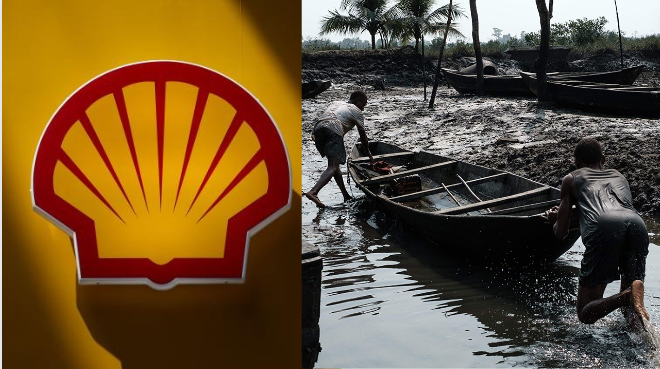Over 1,216 residents from host communities have filed a N500 billion lawsuit against Shell Petroleum Development Company, alleging a violation of an existing “Mareva” injunction and seeking to halt the sale of Shell’s onshore assets in Nigeria. The case, filed at the Federal High Court in Abuja under case number FHC/ABJ/CS/1300/2024, is being led by Senior Advocate of Nigeria (SAN) Mohammed Ndarani.
The lawsuit comes in response to a reported $2.8 billion divestment deal between Shell and a consortium of Nigerian organisations. The host communities claim this transaction violates a subsisting Mareva injunction issued by the Federal High Court in Akure on September 28, 2023. The injunction had ordered Shell not to dispose of its Nigerian assets until a pending legal case is resolved. The communities allege that the recent deal with the consortium, led by Renaissance, constitutes a breach of this court order.
The claimants seek a perpetual injunction to prevent Shell, Renaissance, and any other potential investors from further negotiations or transactions related to the sale of these assets. They are also demanding N500 billion in damages and an additional N5 billion for legal costs, to be paid within 48 hours of a favourable judgment.
The host communities, primarily fish farmers, claimed to have suffered extensive property losses due to frequent oil spills from ruptured pipelines owned by Shell. They argued that Shell’s divestment attempts are an effort to avoid its responsibilities to clean up environmental damage in the Niger Delta region, where the company has operated for around 50 years.
In January, Shell agreed to a divestment deal valued at $1.3 billion, with an additional $1.1 billion in potential payments tied to receivables and cash balances, involving Renaissance, a consortium that includes ND Western, Aradel Energy, First E&P, Waltersmith, and Petrolin. However, the deal has drawn opposition from civil society groups and local communities, who accuse Shell of abandoning its environmental responsibilities.
Groups like Amnesty International and the Centre for Research on Multinational Corporations (SOMO) have called on the Nigerian government to stop Shell’s planned sale of its onshore oil operations. SOMO argued that Shell should not be allowed to divest from the Niger Delta until it addresses its legacy of pollution and ensures the safe decommissioning of abandoned oil infrastructure. Their report highlights a lack of transparency around financing for decommissioning activities, noting that while Nigerian law requires companies to allocate funds for decommissioning, it is unclear if Shell has set aside sufficient amounts for this purpose.





